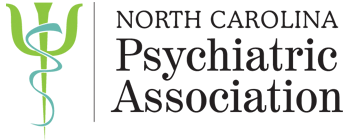- Home
- About
- Foundation
- Advocacy
- Conferences & Events
- Jobs & Classified Ads
- Contact Us
The Need for New Solutions to the Mental Health Tsunami of the COVID PandemicSamantha Meltzer-Brody, M.D., M.P.H.December 2021The mental health impact of the COVID-19 pandemic is enormous and constitutes a public health crisis. Both national and international data demonstrate worsening mental health globally.1 Primary drivers of worsening mental health include worry and stress of contracting COVID-19, caring for sick family members, loss of a loved one to COVID-19, disrupted employment, economic hardship, social isolation, school closures, and loss of childcare. This crisis has led to a massive need for psychiatric and behavioral health care that our U.S. health care system is not prepared to absorb. The following sobering statistics paint the story of the magnitude of the need. Population data estimates from the Household Pulse Survey, a partnership of the National Center for Health Statistics (NCHS) with the Census Bureau, show 4 in 10 adults had clinically significant symptoms of anxiety and/or depression in January 2021, a marked increase compared to a similar time period in 2019 (pre-pandemic).2 Communities of color have been disproportionately impacted; 48% of non-Hispanic black adults and 41% of non-Hispanic white adults report symptoms of anxiety and/or depressive disorders, compared to non-Hispanic white adults (41%). 3, 4 Data from the March 2021 Kaiser Family Foundation (KFF) report demonstrates that younger people and women, including mothers, have been those who are hardest hit by the mental health impact of the pandemic. The impact of the pandemic on our youth If we look specifically at the impact on our children and teens, the pandemic has been particularly cruel. Between March and October 2020, the percentage of emergency department visits for children with mental health emergencies rose by 24 percent for children 5 to 11 years old and by 31 percent for children and teens 12 to 17 years old (CDC).5 There has also been a devastating 50 percent surge in emergency department visits for suspected suicide attempts among girls 12 to 17 years old. Suspected suicide attempts climbed in boys by 3.7 percent.6 New data from the 2022 Mental Health in America Report confirms and expands the CDC data: more than 2.5 million youth (10.6%) have severe major depression, and 15.7% of youth experienced a major depressive episode in the past year. In North Carolina specifically, the chronic under-funding of child and adolescent mental health services has led to a dire situation across the state. North Carolina is near the very bottom of all 50 states in terms of funding for child and adolescent mental health services.7 This egregious situation has caused our emergency rooms to be filled with our youth requiring care, there is a horrendous lack of inpatient psychiatry beds for children and adolescents, and parents are unable to find outpatient clinicians for mental health care of their children. It is simply unacceptable. The path forward Innovative approaches are needed to address the mental health crisis. This will require new resources, widespread collaboration, and a financial investment from all stakeholders, including federal, state, and local entities. It will also require a robust and coordinated effort to make meaningful change. I want to share an example of what UNC is doing to tackle the impact of the mental health crisis. At the University of North Carolina at Chapel Hill, a large public university and health care system, we are working hard to address the mental health impact of the pandemic. UNC Health and the Department of Psychiatry are significantly expanding the scope of clinical services to address the ever-growing need across the state in all aspects: inpatient beds, outpatient services, scope of our training mission, and expanded research programs. At the university, in response to three tragic deaths of students from suicide over a one month period, the Chancellor called for a November 15th Mental Health Summit for the UNC Community. The goal of the Summit was to educate, engage, and foster discussion among faculty, staff, and students, and included opportunities to hear diverse voices and perspectives from students, faculty, and parents, learn from national leaders, and hear from campus working groups focused on prevention, crisis response, and campus culture. The discussions will help distill a set of recommended action items to augment new initiatives already in process and being deployed. The UNC Mental Health Summit is the beginning of a conversation about where we are now and where we need to go next. It is a great model of what needs to be happening in North Carolina, at all levels, to discuss the mental health landscape. The NCPA has an opportunity to seize upon the current crisis to advocate for changes that are desperately needed. As psychiatrists, it is up to all of us to be part of the solution. References: 1. LANCET, https://www.thelancet.com/infographics/covid-mental-health 2. https://www.cdc.gov/nchs/covid19/pulse/mental-health.htm 3. Panchal N, Kamal R, Cox C, Garfield R. The Implications of COVID-19 for Mental Health and Substance Use. Feb 10, 2021. DOI: https://www.kff.org/coronavirus-covid-19/issue-brief/the-implications-of-covid-19-for-mental-health-and-substance-use/ 4.Kearney A, Hamel L, Brodie M. Mental Health Impact of the COVID-19 Pandemic: An Update, April 14, 2021. DOI: https://www.kff.org/coronavirus-covid-19/poll-finding/mental-health-impact-of-the-covid-19-pandemic/ 5. Leeb RT, Bitsko RH, Radhakrishnan L, Martinez P, Njai R, Holland KM. Mental Health–Related Emergency Department Visits Among Children Aged <18 Years During the COVID-19 Pandemic — United States, January 1–October 17, 2020. MMWR Morb Mortal Wkly Rep 2020;69:1675–1680. DOI: http://dx.doi.org/10.15585/mmwr.mm6945a3external icon 6. Yard E, Radhakrishnan L, Ballesteros MF, et al. Emergency Department Visits for Suspected Suicide Attempts Among Persons Aged 12–25 Years Before and During the COVID-19 Pandemic — United States, January 2019–May 2021. MMWR Morb Mortal Wkly Rep 2021;70:888–894. DOI: http://dx.doi.org/10.15585/mmwr.mm7024e1 7. Reinert, M, Fritze, D. & Nguyen, T. (October 2021). “The State of Mental Health in America 2022” Mental Health America, Alexandria VA.
|
